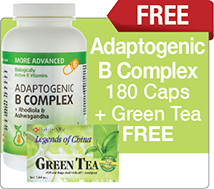Fatty Liver Disease
Updated Aug. 12th, 2019
Fatty liver disease is a condition where large globules of fat accumulate in the liver cells in a process called steatosis. It most commonly occurs in those with excessive alcohol intake or in those who are obese (alcoholic or nonalcoholic fatty liver disease).
Most people with this condition are asymptomatic (show not symptoms), and most often the diagnosis is incidentally made during a regular physical exam and screening blood work. Fatty liver disease is largely reversible, but it can become concerning when the accumulation of fat is combined with a progressive inflammation of the liver, creating a condition called steatohepatitis. The underlying cause determines whether it is alcoholic or nonalcoholic steatohepatitis (NASH).
What causes Fatty Liver?
The most common causes of fatty liver are metabolic disorders created by alcoholism or by metabolic syndrome conditions such as: diabetes, hypertension, obesity, and dyslipidemia. For more information on metabolic syndrome, please click here. There are other, more rare metabolic disorders, nutritional deficiencies and drugs that can also cause this condition in some cases. In each case the metabolism of fatty acids becomes defective and fats are not properly used by the body, leaving them to build up in the liver. Because of the growing obesity epidemic in North America, these conditions are becoming much more prevalent in our current society. Estimates are between 10 and 25% of the population suffers from some form of fatty liver.
What’s going on?
As fatty liver disease progresses, fat accumulates in small bubbles in the cell called liposomes. Over time these bubbles grow larger and coalesce until eventually they take over the cell and expand its size. Over time, multiple cells may merge creating fatty cysts that are no longer reversible. When these changes occur in conjunction with local inflammation, as in steatohepatitis, it creates fibrosis around the enlarged cells. As the fibrosis accumulates, it causes further permanent damage to the structure of the liver, and creates cirrhosis.
How do I know if I have it?
Unfortunately, the vast majority of people with fatty liver disease will have no idea that anything is wrong. Symptoms of this condition begin to appear only when the liver is damaged and begins to undergo cirrhosis. Once this occurs, symptoms of fatigue, fluid retention, muscle wasting, increased bruising, abdominal fullness, and jaundice will occur. If you are experiencing more than one of these symptoms you should seek medical attention.
How do I get tested?
A physical exam and blood test can be done to examine the state of your liver. Often, an enlargement of the liver is the first sign of fatty liver disease which can be identified during a physical exam. Blood work will check for an elevation of two liver enzymes called AST and ALT. Following these tests, a biopsy of the liver may be performed to look at fat deposits and the state of the liver’s cellular structure. Another condition that will be analyzed is the inflammation levels of the liver in order to make an assessment between fatty liver disease and steatohepatitis. An alternative to a biopsy, there are less invasive tests like an ultrasound, CT scan and MRI which may be used to diagnose.
How can I reverse it?
Interestingly, most cases of fatty liver disease can be reversed, simply by eliminating the underlying cause. In the alcoholic form, this means treating the alcohol dependency and no longer drinking. In the nonalcoholic forms, the treatment is the same as that for metabolic syndrome: reduce body weight to the normal range through a balanced diet and daily exercise. Please see our Metabolic Syndrome article for more information. For more tips on how to lose weight, please see our Weight Loss Tips article. It is also important to avoid alcohol and unnecessary medications to reduce any strain on the liver.
Supplements for Treatment
In addition to diet and lifestyle changes in order to promote healthy weight loss and insulin levels, there are a number of supplements with some preliminary evidence in the treatment of fatty liver disease. Supplementation of 800IU of vitamin E daily has been found to eliminate NASH in 1/3rd of cases. For more information on the benefits of vitamin E, please click here. Supplements that aid in the treatment of metabolic syndrome as listed above can also benefit. Reducing or eliminating diabetes can further help to reverse fatty liver disease. For more information on the treatment of diabetes, please click here. In addition to treating the underlying cause, it is also important to promote liver health with supplements such as milk thistle and NAC. For more information on ways to promote liver health, please click here.























Thanks for the great article. I suffered from fatty liver for years. My diet had caused my fatty liver, and it was slowly killing me. Then I learned about nutrition and I reversed my fatty liver naturally.
Hi John,
We are glad to hear your knowledge into nutrition has had such a beneficial outcome for you and was life saving! If you're looking for healthy recipes, check out our new recipe section on our site. We have linked a great, healthy sloppy joe alternative recipe below, hope you enjoy it and have a healthy day!
https://www.nationalnutrition.ca/articles/healthy-recipes/bbq-lentil-sloppy-joes/
What about choline deficiency? It's heavily linked to non-alcoholic fatty liver...
Hello Michelle,
Indeed, that's true. We have another article on Choline that outlines the link between choline deficiency and fatty liver disease. If you'd like to read it, we've linked the article below.
https://www.nationalnutrition.ca/articles/supplements/choline/
Have a healthy day.
Does Omega 3-6-9 supplement helps in reversing fatty liver?
Hello Lala,
A good general rule for supporting a healthy liver when you have FLD, is avoiding the bad fats, and ensuring that you eat enough of the essential fats, like those that you mention in your question. A naturopath's recommendations will also usually include eating more vegetables, and eating less refined carbohydrates.
Stay well!
Husband had his physical checkup last summer and his blood work showed a very high risk of fatty liver. This article helps, however making sure he follows a healthier diet and taking supplements is another challenge. He still forgets (intentionally don’t want to remember) to take his daily multivitamin. :(
Wish there is a one time pill I can make him take and he will listen.
Hello Emma,
We are sorry to hear about your husbands health, but glad we could help provide some needed information. We hope you find the right protocol for his needs. Perhaps he can try different supplement formats if he doesn't like capsules or try meal replacement drinks that taste good to help with dietary changes.
Have a healthy day!